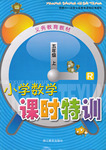题目内容
Of all living creatures on earth, insects are the most plentiful. Some1are very useful to man, for example, bees,2we get honey and wax, and silkworms, which3us with silk. Other varieties,4, are extremely harmful, and do a great5of damage, especially to crops. Locusts (蝗虫) are perhaps the most dangerous of all,6they will eat almost any green7, and when millions of them8on cultivated land(耕地)they soon leave it9. In some countries they are the farmer’s10enemy. Another nuisance is the common11, not only because it12us indoors and out - of- doors, but because it spreads diseases.
Scientists have given much time and13to the study of insects. It needs the most careful and14observation. Thanks15their discoveries we now know almost all16is to be known about the habits of these hardworking insects, bees and ants, which live in17better planned in some ways than our18. But the most valuable work has been done in trying to give19to men, animals and crops from the20which insects cause.
- 1.
- A.members
- B.forms
- C.qualities
- D.varieties
- A.
- 2.
- A.by which
- B.from which
- C.of which
- D.in which
- A.
- 3.
- A.give
- B.produce
- C.offer
- D.supply
- A.
- 4.
- A.however
- B.meanwhile
- C.therefore
- D.what's more
- A.
- 5.
- A.majority
- B.number
- C.amount
- D.quantity
- A.
- 6.
- A.and
- B.for
- C.if
- D.when
- A.
- 7.
- A.grass
- B.field
- C.fruit
- D.plant
- A.
- 8.
- A.settle
- B.attack
- C.pass
- D.cross
- A.
- 9.
- A.bare
- B.nothing
- C.empty
- D.untouched
- A.
- 10.
- A.hardest
- B.greatest
- C.serious
- D.wildest
- A.
- 11.
- A.insect
- B.creature
- C.fly
- D.enemy
- A.
- 12.
- A.dislikes
- B.bites
- C.worries
- D.hates
- A.
- 13.
- A.understanding
- B.ideas
- C.comprehension
- D.thought
- A.
- 14.
- A.serious
- B.patient
- C.curious
- D.long
- A.
- 15.
- A.for
- B.of
- C.to
- D.with
- A.
- 16.
- A.that
- B.which
- C.there
- D.what
- A.
- 17.
- A.societies
- B.crowds
- C.teams
- D.organizations
- A.
- 18.
- A.world
- B.nation
- C.selves
- D.own
- A.
- 19.
- A.help
- B.protection
- C.living
- D.defense
- A.
- 20.
- A.injury
- B.wound
- C.sickness
- D.ruin
- A.
DBDAC BDAAB CCDBC CADBA
1.D 有些种类的昆虫。
2.B we get honey from bees,“从蜜蜂身上得到蜂蜜”。
3.D provide/supply sb.with sth.表示“给某人提供/供应”,用C则就该是offer sb.sth.
4.A 在此表示上下文的转折关系,“但另一些种类有害”。
5.C a great/large amount of+不可数名词,a large/small quaintly of+可数/不可数名词表示“大量的”。
6.B 引导状语从句表原因,具体加以解释说明。
7.D plant概括性最强,包括grass等各种植物。
8.A settle用作不及物动词时,表示“停息、停留;安居,定居”等词义。
9.A 蝗虫飞过,耕地光秃秃的,植物都被吃了(当然有时可能留下光秃秃的枝干)。
10.B 农民最大的敌人。
11.C 下文提到在屋里屋外都有,还传播疾病,因此选C。
12.C 苍蝇在屋里屋外飞,困扰我们。
13.D 花时间,想办法研究昆虫。give much thought to表示“关心,想到”。
14.B 观察昆虫需要耐心,上文提到give much time to,因此此处也可说long-time observations.
15.C thanks to表示“幸亏/多亏有了”。
16.C 本小题是all(that)there is to be done句式为there's sth to be done(有事需要做)的结构变化形式。
17.A 既然与“我们的”相比较,其共同之处是society,人类社会和动物“群栖,群集”。
18.D our own(society),“我们自己的社会形态”。
19.B 与下文的from相呼应,give sb.protection from,“给……以保护”。
20.A 昆虫给我们造成的伤害.
1.D 有些种类的昆虫。
2.B we get honey from bees,“从蜜蜂身上得到蜂蜜”。
3.D provide/supply sb.with sth.表示“给某人提供/供应”,用C则就该是offer sb.sth.
4.A 在此表示上下文的转折关系,“但另一些种类有害”。
5.C a great/large amount of+不可数名词,a large/small quaintly of+可数/不可数名词表示“大量的”。
6.B 引导状语从句表原因,具体加以解释说明。
7.D plant概括性最强,包括grass等各种植物。
8.A settle用作不及物动词时,表示“停息、停留;安居,定居”等词义。
9.A 蝗虫飞过,耕地光秃秃的,植物都被吃了(当然有时可能留下光秃秃的枝干)。
10.B 农民最大的敌人。
11.C 下文提到在屋里屋外都有,还传播疾病,因此选C。
12.C 苍蝇在屋里屋外飞,困扰我们。
13.D 花时间,想办法研究昆虫。give much thought to表示“关心,想到”。
14.B 观察昆虫需要耐心,上文提到give much time to,因此此处也可说long-time observations.
15.C thanks to表示“幸亏/多亏有了”。
16.C 本小题是all(that)there is to be done句式为there's sth to be done(有事需要做)的结构变化形式。
17.A 既然与“我们的”相比较,其共同之处是society,人类社会和动物“群栖,群集”。
18.D our own(society),“我们自己的社会形态”。
19.B 与下文的from相呼应,give sb.protection from,“给……以保护”。
20.A 昆虫给我们造成的伤害.

练习册系列答案
 小学课时特训系列答案
小学课时特训系列答案
相关题目